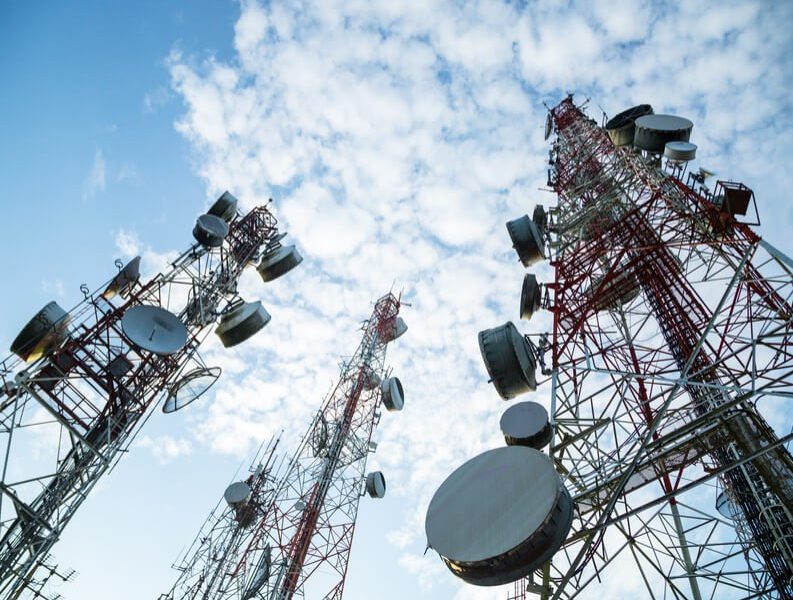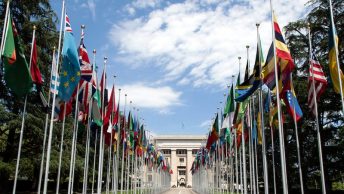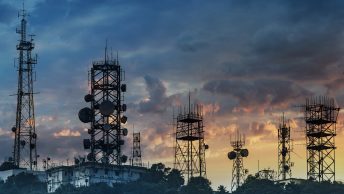As of 2022, the Indian telecom industry has a consumer base of 1.17 million with approx. 85% of teledensity overall. With this, the Indian telecom industry stands second largest in the world. The telecom sector is the third largest sector in terms of the FDI inflow in the country. The extant framework that primarily regulates the telecom industry is governed by Indian Telegraph Act, 1885. However, the telecom sector has witnessed a tremendous change with the emergence of new technologies like the Internet of things, Machine to Machine communication, the rollout of 4G/5G internet and more internet penetration in rural-remote areas. These changes are generating more and more opportunities; hence, to adapt to such changes, the government has released a new Draft Telecommunication Bill, 2022 (“the Bill”), for the comments of the stakeholders.
The Bill aims to replace the outmoded Indian Telegraph Act, 1885, Telegraph Wires (Unlawful Possession) Act, 1950, and Wireless Telegraphy Act, of 1933. Further, the Bill focuses on over-the-top (OTT) platforms, dilute the powers of the Telecom Regularity Authority of India (“TRAI”), and gives more power to the central government in terms of allocation of spectrum and decision-making with regards to waiver, etc. At this juncture, the article tries to look into the fundamental provisions of the Bill, how those provisions would be operational, what would be the consequences of the same and since the Bill has raised eyebrows regarding privacy concerns, independence of the telecom sector, inter alia, looking into the challenges it poses becomes crucial.
Examining the salient features of the Draft Bill
Under Section 2(21), the Bill envisages the expansion of the definition of telecommunication services by bringing OTT platforms under its regime for the first time. OTT platforms like WhatsApp, Google Meet, Telegram, Signal, etc., have started providing various telecom services like audio and video calls and, until now, they are not supposed to have any license to provide these services. This has been a long-standing bone of contention raised by various non-OTT telecommunication service providers since, unlike OTT platforms, they are supposed to have the license and undergo various regulatory procedures to provide the same services and due to this inequality, they have to incur huge losses. Bringing OTT platforms under the ambit of telecommunications services would require them to follow the regulatory procedures and avail licenses to provide telecommunication services, bringing them on an equal pedestal to compete with traditional telecommunication service providers. Additionally, to curb the rising incidence of spam and fake calls, Sections 4(7) and (8) of the Bill mandate that telecom service providers identify their subscribers through a verifiable mode of identification. The Bill proposes that the identity of a person communicating must be revealed to the person being communicated to. This effectively means that the name of the person communicating would also be displayed with the number while receiving calls. This obligation is not only limited to traditional telecom services but would also extend to OTT service providers. For the strict enforcement of the same, any person who provides incorrect details during verification would be liable to pay Rs. 50,000 fine and can be barred from using the services of the concerned platform for a certain period. Furthermore, as the communication regarding promotion and advertising is concerned, the Bill, under Section 33(2), clarifies that the central government can prescribe that it must only be done if the subscriber consents to it. The Bill empowers the government to take strict action in the instance of violation of the aforementioned rules.
Interestingly, the Bill dilutes the powers of the TRAI, the umbrella organization that primarily governs the telecom industry, and grants more power to the Central government. As per Section 3 of the Bill, the government will have exclusive privilege in granting licenses and would not have to take recommendations from the TRAI before granting licenses, nor can the TRAI ask the central government to lay bare any documents and information required to decide such recommendations. Earlier, the Department of Telecommunication was required to refer to TRAI for reconsideration of any recommendation with which it does not agree. However, the Bill proposes to remove such requirements. Furthermore, the Bill, under Section 46(d), also seeks to cull out the provision in the TRAI Act, which bars the appointment of certain government officials as a chairperson of TRAI.
Under Section 5, the central government will have the power to allocate spectrums. The spectrum allocation would be with or without auction, depending on the government’s discretion. Further, Section 20 envisages that if a telecom agency files for bankruptcy and goes insolvent, its assigned spectrum will go back to the central government. The Centre can defer, write off, convert into equity, or grant relief to any licensee under exceptional circumstances. The Bill seeks to bring the Telecommunication Development fund (TDF) to replace the extant Universal Service Obligation Fund (USOF), which is a corpus of funds generated by levying a 5% of levy on the AGR of telecom entities. The fund has been largely earmarked for aiding rural connectivity, and now with TDF, the focus would be more on research and skill development, connectivity in underserved urban areas etc.
Until now, internet shutdowns have been done under the Telecom Services (Public Emergency or Public Safety Rules), 2017. However, the said rules would become redundant with the enforcement of this Bill since it envisages a provision, under Sections 24 and 25, which allows the Union and state governments to suspend internet services for the reasons of “public emergency, public safety or national security.” The explanatory note clearly states that invocation of the same would be for “the time-bound limited suspension of transmission”. Further, the Bill aims at easing criminal penalties by removing obsolete penalties and imposing penalties based on severity, while it also aims to settle disputes by paying fines and undertaking. This would reduce the threat of criminal proceedings for trivial operational issues confronted by operators and facilitate ease of doing business. With the same purpose in mind, the Bill set out a provision under Section 13 for the Right of way (a mechanism to lay down telecom infrastructure), which ensures that land owned by a public entity should be readily available to the telecom operators if there is no express ground for refusal.
Challenges, concerns, and shortcomings
Although the Bill settles certain contentions and has provisions attuned to the realities of the contemporary world to govern the telecom sector, it is still not immune to criticism. A severe criticism of the Bill pertains to bringing internet-based OTT platforms within the ambit of this Bill. BSA, a software alliance, said that “the government’s approach is an “outlier” compared to other jurisdictions where licensing requirements for internet-based services are “uncommon.” “This will pose a significant risk for IT and Digital businesses in India and will likely throttle Internet-based innovation as well as the nascent Indian start-up ecosystem,” said BSA. Additionally, Section 24 of the Bill also proposes that any information that is transmitted or received over any telecommunication services can be intercepted by an authorized official of the government “in the interest of the sovereignty, integrity or security of India, friendly relations with foreign states, public order, or preventing incitement to an offense.” The question that emerges is how effectively this could affect the calls on platforms like WhatsApp, which are essentially end-to-end encrypted.
The Bill gives power to the government to suspend internet services; however, there is no time frame within which such suspension would sustain, nor is there any judicial oversight mechanism stipulated to scrutinize whether such suspension is valid. Internet services could be suspended in the cases of “occurrence of any public emergency or in the interest of public safety or in cases of national security” however, these are subjective and vague terms which are not duly defined and hence, gives wide discretion and power to the authorized officials to exercise this provision.
Another allegation leveled against the Bill pertains to diluting the powers of the TRAI. The Bill has effectively reduced this body from a regulatory to merely a recommendary body. The Bill has essentially given all the significant powers of the TRAI to the central government. The independence of TRAI could be questioned since the Bill has removed the bar on certain government officials to be the chairperson of TRAI. It has been argued that removing such powers is not best with the international practice where the telecom regulators are bestowed with independence that helps in ensuring consumer protection and helps maintain the confidence of the investors in the market.
Conclusion
The FDI inflows in the telecom sector rose by 150% between 2014-2021; this shows that the Indian telecom industry is exponentially growing due to the emergence of various telecom technologies and different telecom platforms (OTTs) with the expansion of 3G/4G and the prospective roll out of 5G. The Bill has brought a conducive framework to maintain and facilitate the growth of the telecom industry in India. Although the Bill caters to the contemporary realities of the world, there are serious concerns about the privacy of the people. There are serious doubts regarding the effects of burdening OTT with the licensing regime. Will it negatively impact innovation or help encourage healthy competition? Whether curtailment of the powers of TRAI would still ensure transparency? After receiving diverse opinions on the Bill, it is time to see if the government would make the necessary amendments to settle these questions.
Goyam Pitalia is an associate analyst for LAOT and a second-year student at NALSAR.
This post was edited by Eeshan Sonak and published by Avani Vijay from the Student Editorial Team.







[…] Posted byGoyam Pitalia […]